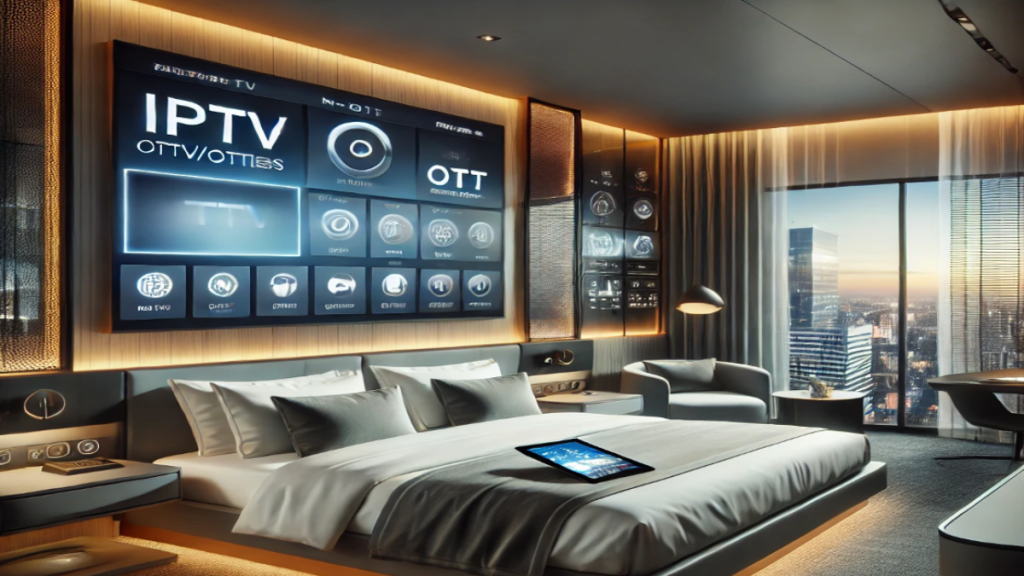The hospitality industry is changing fast. It’s no longer just about thread count or location—travelers now want speed, control, and customization. They want the kind of seamless experience they get from the apps and devices they use every day. Hotels that can deliver that level of convenience and personalization are pulling ahead. At the heart of this shift is technology: smart systems, mobile integration, and data-driven service that together redefine what a great stay feels like.
Convenience Is the New Standard
The modern traveler doesn’t want to wait. Whether it’s checking in after a long flight or adjusting room settings, speed matters. Hotels are responding by streamlining processes that used to be time-consuming. Now, guests can check in on their phones, use a digital key to open the door, and even customize room settings before arrival.
This kind of control isn’t a gimmick—it’s quickly becoming expected. When a room anticipates a guest’s preferences or lets them order what they want without navigating clunky menus, it sends a message: your time matters. And that’s a competitive edge.
Mobile and App-Based Interactions
The rise of mobile apps in hospitality has opened new paths for engagement. Guests can now manage almost every part of their stay from their phone: booking, arrival, service requests, even checking out. These apps can also push relevant updates, recommend experiences, or offer room upgrades in real time.
This makes communication frictionless. There’s no need to call the front desk or wait for service. At the same time, hotels benefit from lower operational strain and better data on what guests use, need, and want. Everyone wins when the tech works right.
Smart Rooms: The New Benchmark
A truly modern hotel room does more than offer a place to sleep—it adapts to the guest. A smart hotel room isn’t just one with a screen or voice assistant. It’s a fully connected space where lighting, climate, entertainment, and even curtains can be controlled through a single interface.
Transform guest experience with HotelSmarters’ smart hotel room technology, featuring IPTV, OTT, automation, and in-room controls. These features don’t just feel high-tech—they make the space more intuitive, more relaxing, and more responsive to the way guests live today. Plus, they give hotels a way to track energy use, anticipate maintenance, and adjust room systems in real time for efficiency.
AI-Driven Service Behind the Scenes
Artificial intelligence is also playing a bigger role in guest service, especially where speed and accuracy matter. AI chatbots now handle many common service requests—towels, late checkout, room cleaning—without human intervention. That frees up hotel staff to focus on tasks that require personal attention.
This isn’t about replacing hospitality with machines. It’s about removing friction. Guests get answers instantly. Staff get more time to provide thoughtful service where it counts. And hotels see a rise in satisfaction scores because people feel like their needs are being met quickly and without confusion.
Personalization vs. Privacy
Hotels now have access to more data than ever: guest preferences, behavior patterns, and service history. Used well, this data can personalize stays in ways that feel natural and appreciated. A guest might arrive to find their favorite snacks stocked, the temperature set just right, and entertainment options lined up based on past visits.
But personalization walks hand in hand with privacy concerns. Hotels must be transparent about how data is collected and used. Trust is crucial—guests need to feel in control of their information, or the convenience won’t be worth the tradeoff. Security, consent, and clarity matter just as much as the tech itself.
Tech Should Enhance, Not Replace, Hospitality
The best hotel technology doesn’t get in the way—it enhances the human side of hospitality. Tech should simplify logistics so staff can spend more time actually connecting with guests. For example, using a system that notifies the front desk when a VIP guest checks in lets the team prepare a more personal welcome.
Hotels that strike this balance—smart systems plus real service—create standout experiences. The goal isn’t to digitize everything. It’s to use technology to support better hospitality: more intuitive, more personal, and less about processes and paperwork.
Preparing for What’s Next
The pace of innovation in hospitality is only picking up. Biometrics, augmented reality, and even robotics are being tested in hotels worldwide. But adoption isn’t about novelty—it’s about what works. The smartest investments are the ones that make the guest feel more comfortable, more in control, and more valued.
To stay ahead, hotels need a strategy, not just gadgets. That means choosing tech partners wisely, training staff thoroughly, and constantly measuring what’s working. The future may be digital, but the focus still needs to be human.
Final Thoughts
The hotel experience is no longer defined by luxury alone—it’s defined by how well technology and service work together. Travelers today want fast, intuitive, and personalized stays. That’s where smart systems, automation, and mobile integration come in. The smartest hotels aren’t just adding tech for the sake of it—they’re using it to remove hassle, add comfort, and make people feel taken care of. That’s the future of hospitality.

